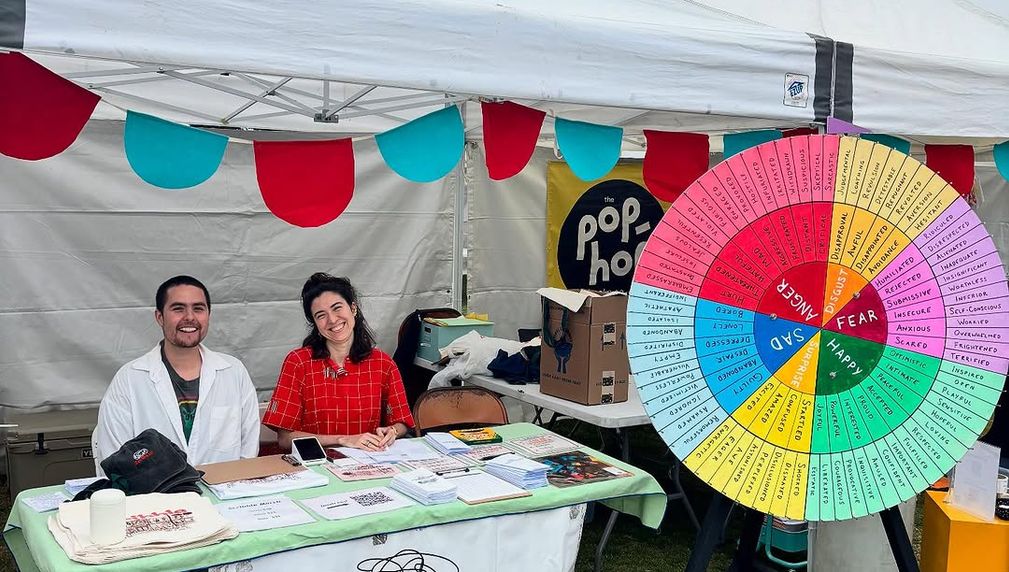Making Therapy Accessible to All
Scribble’s sliding scale therapy program allows clients to pay what they can afford for mental health services, while providing benefits rarely found in affordable therapy: personalized care, a collaborative process, and a diverse roster of therapists who are versed in specialties such as EMDR, Narrative Therapy, and Somatic practices.

What is the primary issue area that your application will impact?
Health care access
In which areas of Los Angeles will you be directly working?
East LA
In what stage of innovation is this project, program, or initiative?
Expand existing project, program, or initiative (expanding and continuing ongoing, successful work)
What is your understanding of the issue that you are seeking to address?
We are in the midst of a mental health crisis in America. 42% of adults report that they are unable to receive necessary mental health services due to lack of funds. In 2022, 1 in 5 people experienced mental illness. Health insurance premiums are at an all-time high, and state-provided medical plans restrict care to a narrow field of providers who may not be the best-fit.
In our neighborhood of Highland Park, 78% identify as a racial/ethnic minority, 29% are designated as low-income, and the uninsured rate is 32% higher than the California average. Many studies have shown that these social determinants of health lead to disparities in accessing affordable mental health care.
Affordable therapy available through the traditional channels is often impersonal, pathologizing, and bureaucratic. There’s an urgent need not just for low-cost services, but for therapy that engages with people on a personal, cultural, and community level.
Describe the project, program, or initiative this grant will support to address the issue.
Funding from LA2050 would allow us to expand our already-thriving affordable therapy program, providing 750 additional free therapy sessions over the course of a year.
Our sliding scale therapy program currently provides over 800 sessions each month for over 300 clients, including adults, children, families and groups. Of that number 91% are low-income, 37% identify as BIPOC, 56% identify as queer, and 23% are under 18. Our sliding scale format allows clients to pay what they can, between $0 and $150 per session. Currently 56% of the sessions we provide are at or below a $75 fee, which is less than half the average cost of a therapy session in California.
Our values and methods provide a new way forward for affordable therapy. The foundation of our counseling program is rooted in a deep commitment to mental health justice. We view therapy as a collaborative process that honors the inherent resourcefulness of our clients and the stories of strength they carry. Our work includes a close and ongoing examination of systems of power and their impact on mental health. Our therapists bring expertise in EMDR, Narrative Therapy, and Somatic practices, all grounded in a holistic approach to healing. At the core of our practice is the belief that healing happens in relationship with ourselves, with others, and within the broader systems we move through.
Describe how Los Angeles County will be different if your work is successful.
Our vision is a more resilient LA County with stronger community bonds: one where mental health care is not a luxury, but part of collective wellbeing. When individual and collective healing flourishes, people are more equipped to show up for their families, neighbors, communities– and to reshape the direction of society for the better.
Our affordable therapy program will continue to increase access to affirming mental health care, particularly for communities historically excluded from it. With support from LA2050, we would be able to add 750 free therapy sessions for people who need the most financial assistance. This would be achieved by adding 15 new weekly clients from the lengthy waitlist for the lowest cost tier, all at a $0 client fee.
In the long term, this positions us to serve more clients and grow our staff, establishing lasting mental health infrastructure in Northeast LA– one of the most underserved areas in Los Angeles County.
Approximately how many people will be impacted by this project, program, or initiative?
Direct Impact: 15
Indirect Impact: 0